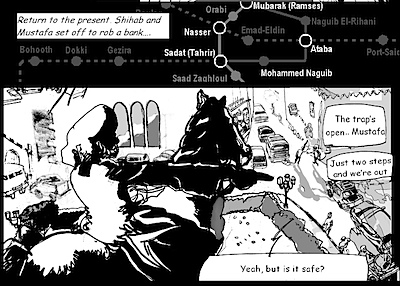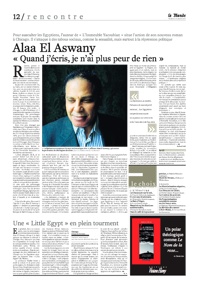Al-Suri’s world-view isn’t original, although it is no less chilling for that: a Qutbian brew of political grievances (Israeli atrocities in Palestine, the US sanctions against Iraq), toxic prejudice (non-Muslims, but especially Jews and crusaders) and sexual anxiety (he recommends killing tourists, ‘ambassadors of depravity, corruption, immorality and decadence’). He writes scornfully of moderate Islamists who talk with ‘the other’ and says there is no point in pursuing dialogue with ‘bacteria, epidemics and locusts’: ‘Only insecticides and medicines to kill bacteria’ were required. (Like the Professor in The Secret Agent, al-Suri’s ‘thoughts caressed the images of ruin and destruction’.) At the same time, he advises jihadis to avoid attacking ‘places of worship for any religion or faith’, including churches and synagogues, and, if possible, to spare women and children. How he reconciles this with his call for ‘inflicting as many human and material losses as possible on the interests of America and her allies’ – or with his regret that the planes on 11 September weren’t armed with weapons of mass destruction – is not something he explains.
But what’s most eerie about al-Suri’s book is not so much its content as its form. The Call is a military manual written in a strikingly secular – at times even avant-garde – idiom. His aim in writing is no different from what it was when he trained mujahedin at camps in Afghanistan: to produce better, smarter fighters, and to defeat the enemy. Most of his arguments, he emphasises, are not drawn from religious ‘doctrines or the laws about what is forbidden (haram) and permitted (halal)’ in Islam, but from ‘individual judgments based on lessons drawn from experience’: ‘Reality,’ not God, ‘is the greatest witness.’ Though he embroiders his arguments with the occasional quote from the Koran, he clearly prefers to discuss the modern literature of guerrilla warfare. Jihadis who fail to learn from Western sources are ridiculed for their inability to ‘think outside the box’. Just as weirdly familiar is al-Suri’s celebration of nomadic fighters, mobile armies, autonomous cells, individual actions and decentralisation, which recalls not only Deleuze and Guattari’s Mille Plateaux, but the idiom of ‘flexible’ capitalism in the age of Google and call centres. His vision of jihadis training themselves in mobile camps and houses, presumably from their laptops, is not so far removed from our own off-site work world. Guerrilla life has rarely seemed so sterile, so anomic, so unlikely to promote esprit de corps. The constraints of the New World Order make jihad a rather grim, lonely crusade, a form of private combat cut off from the movement’s – mostly imagined – following. Al-Suri seems to acknowledge this when he says that the best kind of training occurs on the battlefield, which ‘has a particular fragrance’. On 31 October 2005, after breaking the Ramadan fast with a group of bearded men, he smelled that fragrance for the last time during a gunfight in Quetta with his former allies in Pakistan intelligence. At least one of al-Suri’s dinner companions was killed but he was unharmed. There had been strict orders from above: the Americans wanted to talk to him. He hasn’t been heard from since, and in spite of the objections of prosecutors like the Spanish judge Baltasar Garzón, who was on to al-Suri long before the Americans had heard of him, the CIA refuses to say where he’s being held.
Read the full review which has some great bits about how al-Suri’s ideology was borne out of contempt for the Syrian Muslim Brothers, who negotiated with the Assad regime after their takeover of Hama in 1982 before being crushed.





